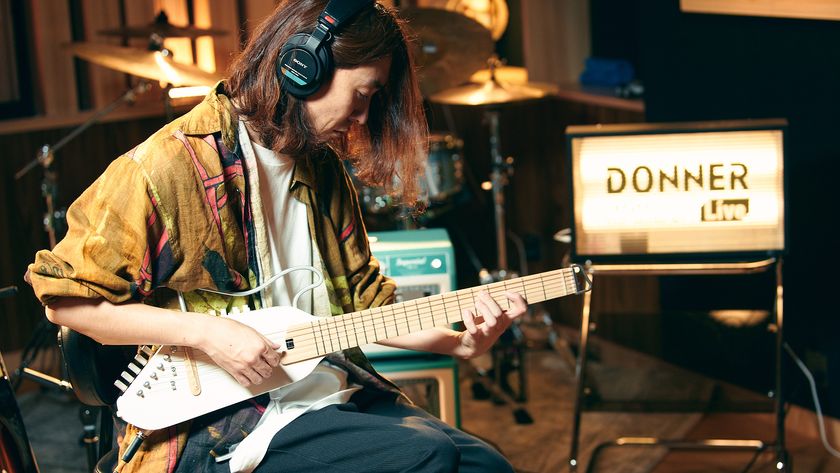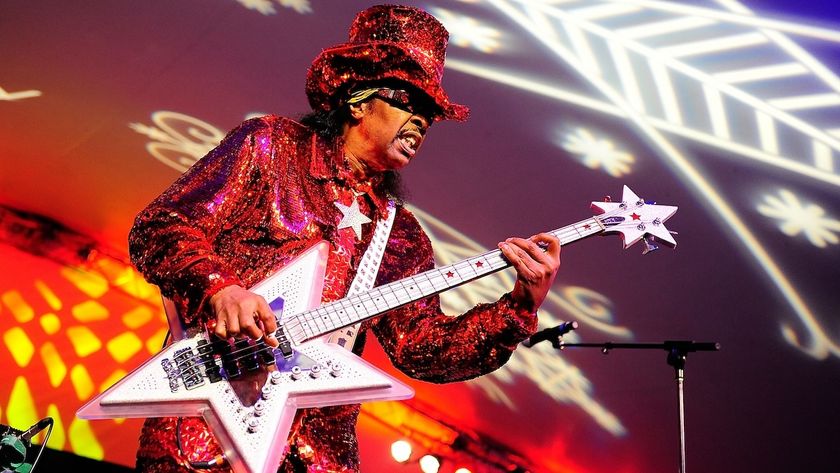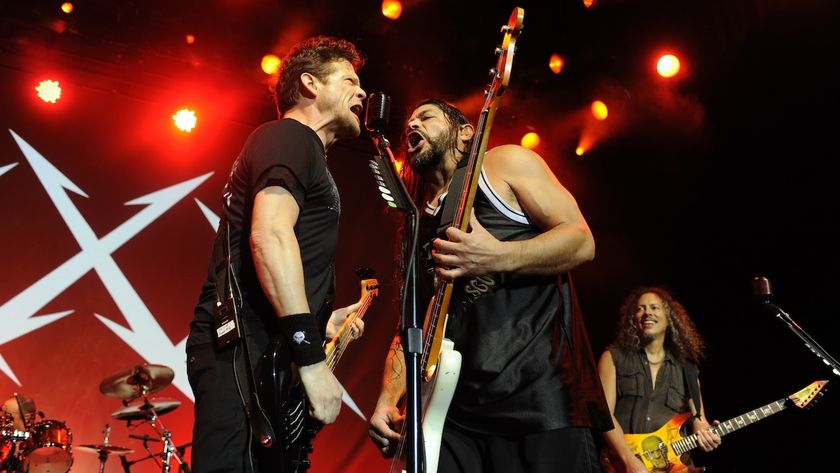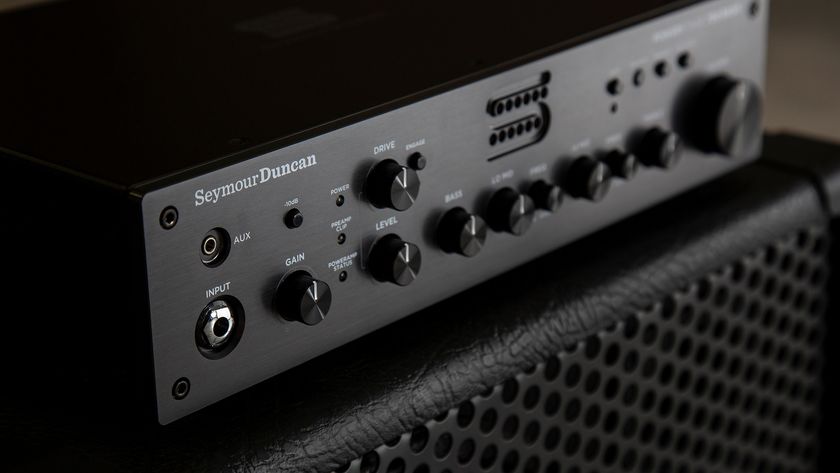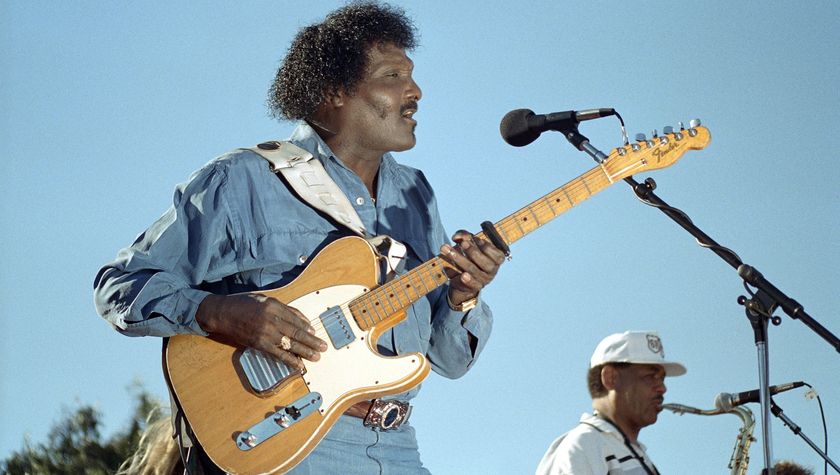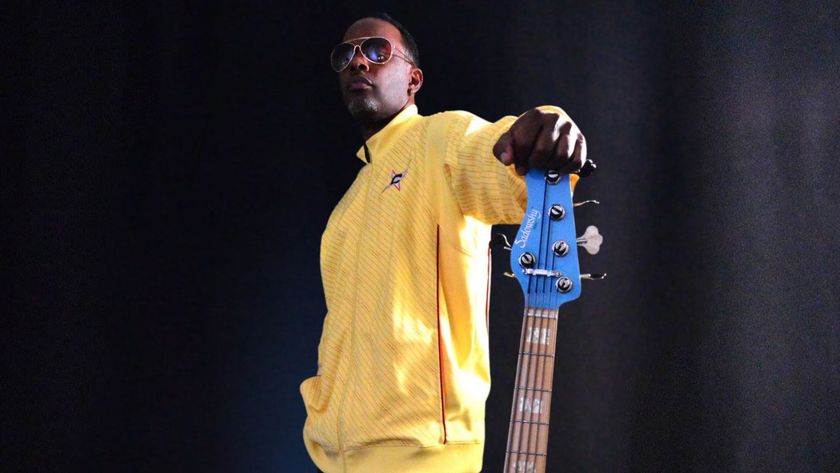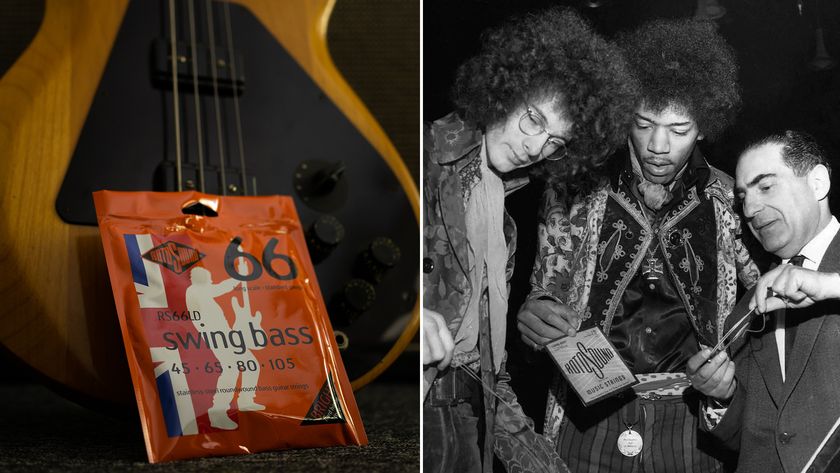DMA’s: Glowing Somewhere New
For Sydney Britpop revivalists DMA’s, LP3 is a shot at coming full-circle with some spicy new beats.
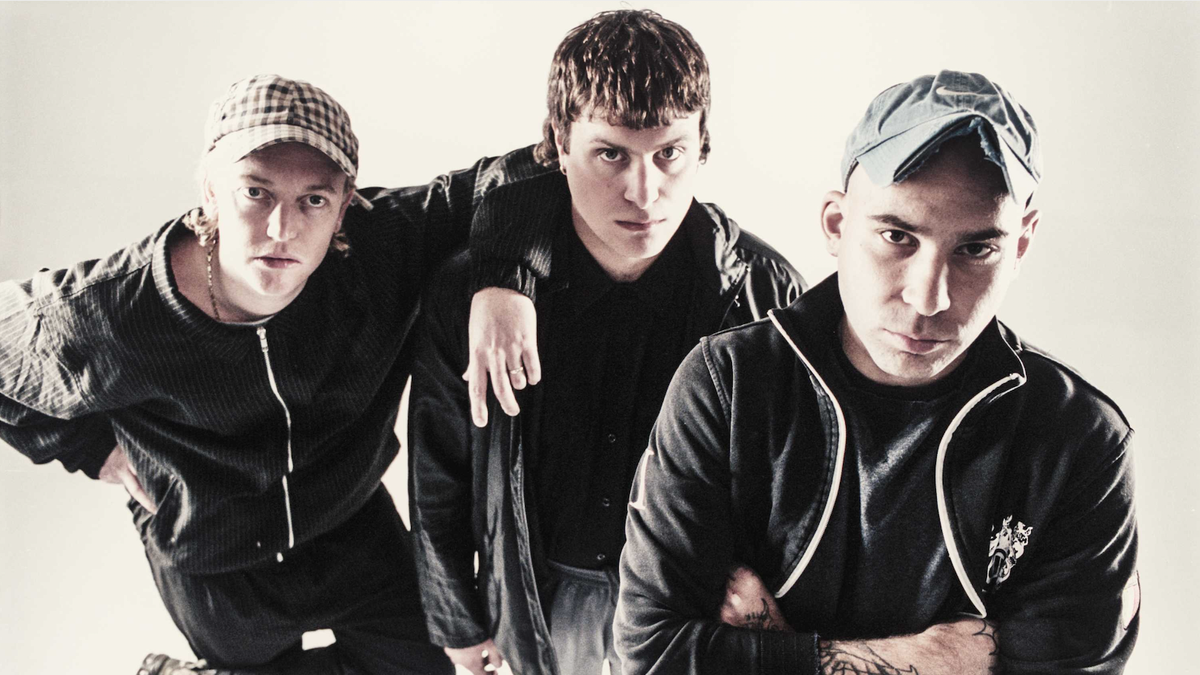
It's a sunny Wednesday morning when Australian Guitar catches up with Johnny Took; the DMA’s guitarist is in naturally high spirits with physical copies of his band’s third album, The Glow, having just landed at his doorstep.
Having firmly established themselves as one of Australia’s biggest and brightest rock outfits – taking ‘90s-style Britpop back from the underground to impressively luminous new heights – the new release sees DMA’s take a slight left turn from searing acoustic balladry towards dancehall techno, bubblegum pop and post-punk.
But as Took lets us know, The Glow is only a natural progression – or regression, in some ways – for the Sydney three-piece.
This record obviously represents a massive leap in style for DMA’s. Where did the idea come from to shake things up and get more experimental?
DMA’s has always been a project based around songwriting, but particularly songwriting in the studio. A lot of it was about listening to what sounds we were liking and trying to experiment with them in our own way. When we were first starting out, I was around 22 – 23 maybe – and I was getting really deep into things like production and engineering. And that’s how Tommy [O’Dell, lead vocals] really discovered his voice; we’d been in a band together before and I’d heard him sing, just mucking around on the piano or whatever, but it was only once I got into audio engineering that he figured it all out.
He came around to drop off some drum gear one day, and I was driving a folk tune on my computer… I had a mic set up and he just had a stab at it for fun, and he was like, “Wait, do I sound like that!?” Y’know, he’d never heard his own voice recorded properly before, and he was like, “Holy shit! Can we do more of this?” And I was like, “Yeah mate! Of course!” And from there, we were writing for two-and-a-half years before we released any music.
So kind of stemming from that, it’s been a natural progression for us, and a progression of our love for recording and whatnot, to keep growing, and keep experimenting with new sounds and new techniques in the studio. When we started, Tommy was the drummer, but he didn’t have any gear to record on so it started with electronic beats. We used to joke that DMA’s stood for Drum Machine Anthems.
But then obviously, we kind of went down a different path, y’know, because we all loved rock ’n’ roll, and we love noisy guitars and all of that kind of stuff. That seemed like a natural place to start off when we decided to take the band seriously, but it’s funny that we’ve kind of gone full circle. And working with Stuart Price on the record really helped with that, what with his history of electronic production and whatnot.
Get The Pick Newsletter
All the latest guitar news, interviews, lessons, reviews, deals and more, direct to your inbox!
I guess when you get down to the basics of it all, DMA’s has always been a pop band on some wavelength.
We’ve always been a pop band, and we’ve never shied away from that. We did hide it under some noisier kind of stuff for a while. It’s not My Bloody Valentine, but there’s some pretty heavy guitar moments in it, y’know? But yeah, fundamentally, the songs have always had those big pop melodies.
Have you always had an ear for the more electronic vibes of pop music?
Not really, to be honest. The last few years in particular, as I’ve started getting better at production, I’ve grown to like it more. I’d spent years and years blowing every cent I made on guitar pedals and experimenting with sounds in that regard, so I guess the natural progression was to start mucking around with synthesisers and drum machines as well.
And then we slowly started getting our heads around that as a band. You can kind of hear that on “Life Is A Game Of Changing” with the sequencers and drum beats at the start – that song started as an experiment for us to incorporate little bits and elements of that sound into our regular songwriting. But obviously it wasn’t just going to be synths, y’know? A big part of it for us is playing synths and guitars together, and making them coexist in that one spot – sonically, that’s one of our favourite positions to be in.
Did you have to change your process to write for the guitar with all those different song structures in the mix?
Not really, because I guess fundamentally, the same concepts applied. That’s what I’m learning at the moment – melody is melody, y’know? How you choose to play it, or what instrument you choose to play it on, or what sonic landscape you choose to set it in – that’s just another part of the creative process. But fundamentally, melody is melody. If you can play it a certain way on the guitar and the voicings work right, then it’ll also work with the synthesisers and such.
That’s one of my favourite things, actually, when you work out the right voicings for guitar parts. And Mason, being the lead guitarist, he’s particularly great at that.
What gear were you rocking?
So I’ve got a ’66 Mustang – I picked it up out in the country, actually, near Cessnock! Mason got me into Mustangs when we first met – I like the way they’ve got a smaller neck, and it’s just got the right type of jangle for me. But this ’66… I picked it up for $1,500, which is pretty amazing! I think the guy thought it was broken – he was like, “Ha! Little does he know…” But if it’s just the electronics, it’s always repairable.
It was actually funny – Mason has family in Cessnock, and his aunty was like, “Hey, come down to our little community ukulele group.” And the guy that sold me the guitar was the guy running the ukulele group at the Cessnock Community Centre. He’d asked me if I was in a band, so he obviously looked up DMA’s and recognised Mason, and he was like, “Hey, I sold your mate Johnny a guitar! I think there were some problems with it…” And Mason was like, “Yeah man, sorry to say, but it was just the electronics. Johnny fixed it and now it sounds incredible.” I think he was a bit heartbroken.
What did you end up doing with the tech?
So I ripped out all the switches from the top and put hot rails in, and then I changed the tone and volume knobs just so they just controls the bridge and the neck straight-up. Depending on what tones I want, I just blend the volume of the neck and the bridge pickups – but if I completely turn off the neck, then it’s got the hot rails in it, so it really screams.
Beautiful stuff. And the rest of the arsenal?
Mason’s got a Jaguar that he bought from that famous strip in London, which is great. And then our live guitarist Joel uses a late ‘80s Strat – I think it’s an ’89 – which is beautiful, and he’s also got a late-‘90s Tele as well. So we’ve got a bit of everything! We stayed true to the Fender theme for this album, but I use Gibsons for my acoustics live – I’ve always played the J150-XLs. I’ve got three of them now, actually, because every time I’d switch the capo out for a new song or something, my guitar wouldn’t sound as good as it did the previous song. I didn’t want to have to keep re-tuning, so I just got a couple spares.

Ellie Robinson is an Australian writer, editor and dog enthusiast with a keen ear for pop-rock and a keen tongue for actual Pop Rocks. Her bylines include music rag staples like NME, BLUNT, Mixdown and, of course, Australian Guitar (where she also serves as Editor-at-Large), but also less expected fare like TV Soap and Snowboarding Australia. Her go-to guitar is a Fender Player Tele, which, controversially, she only picked up after she'd joined the team at Australian Guitar. Before then, Ellie was a keyboardist – thankfully, the AG crew helped her see the light…
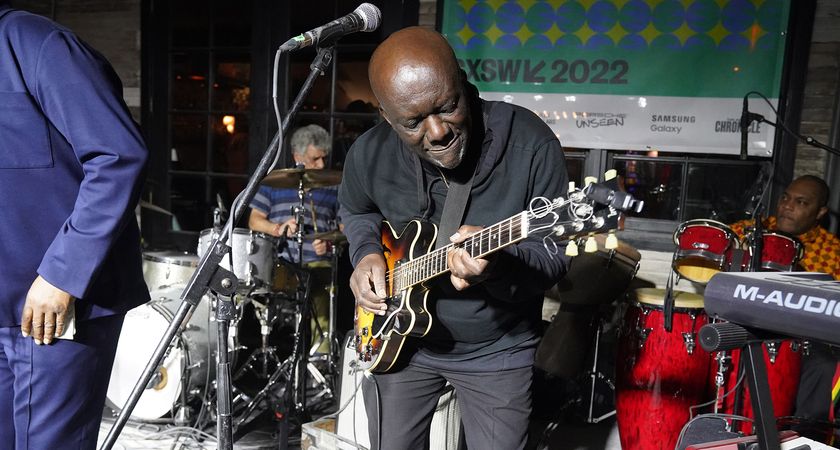
“We set out to put our thoughts and musical ideas out there, hoping they’d be appreciated. That’s proved to be true”: Sampled by Grandmaster Flash, De La Soul and the Fugees, Cymande shaped the sound of hip-hop. Now they’re back to claim their legacy
![[L-R] George Harrison, Aashish Khan and John Barham collaborate in the studio](https://cdn.mos.cms.futurecdn.net/VANJajEM56nLiJATg4P5Po-840-80.jpg)
“I got the impression that he needed to be quite forceful to get his songs onto Beatles records”: George Harrison orchestrator John Barham reflects on their shared love of Indian music and being conducted by Phil Spector
